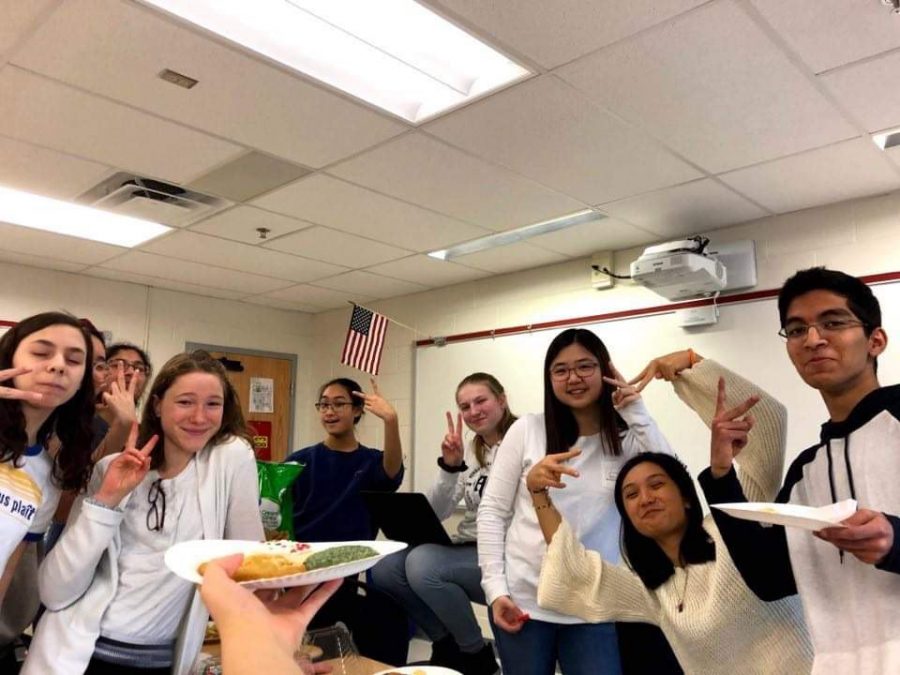Hear ye, hear ye, order in the council!
Jefferson Honor Council discusses how they are adapting to a virtual environment
Honor Council members celebrate with a pizza party during one of their weekly meetings in 2019.
December 14, 2020
“I will uphold academic and personal integrity in the TJ community” ring through Jefferson students’ heads as they complete their daily assignments. Keyboards clicking, each student makes a silent promise to abide to the eleven words that together form the Honor Code. When agreeing with these terms, members of the Jefferson community are promising that they will complete their work in a responsible and meaningful manner, rather than violating instructions and cheating on their tasks. If found violating the Honor Code, students are given an academic violation and their cases are sent to the Honor Council to establish measures to prevent the violation from happening again.
The Honor Council, contrary to popular belief, is a student run council that enables restorative justice within the Jefferson community. The goal: help students move past their academic violations and find an effective plan to ensure they do not repeat the same mistake again. In past years, the council scheduled ‘circles’ to address the matter, an environment where the members, the teacher, and the student in question sat face-to-face and discussed the violation. However, due to virtual learning, their normal procedures have proved to be a challenge.
“During a normal circle, we have everybody sitting together face-to-face. But now because of camera restrictions, it’s difficult because we have to fill out forms and get virtual signatures,” Honor Council member and senior Alka Latish said.
Turning on cameras is only one of the few problems that arose during this pandemic for the council. The Honor Council has received less cases this year as teachers have been reporting fewer violations. To combat this issue, they are focusing on preventative justice, rather than their regular restorative justice.
“We’ve been working with SGA and the administration on improving student advocacy,” Honor Council member and junior Erin Tran said. “We are trying to give students the confidence to talk to their teachers and ask questions, which really helps in lowering the amount of students that actually violate the Honor Code.”
Although the virtual setting has caused several issues for the council, Latish still believes that the work they do is rewarding nonetheless.
“It is very rewarding to see someone come into one of our circles and leave with a plan on how they can do better academically with integrity. It shows the impact of restorative justice and I am happy that I can help students and teachers communicate in a meaningful discussion when trust may be lost,” Latish said.






